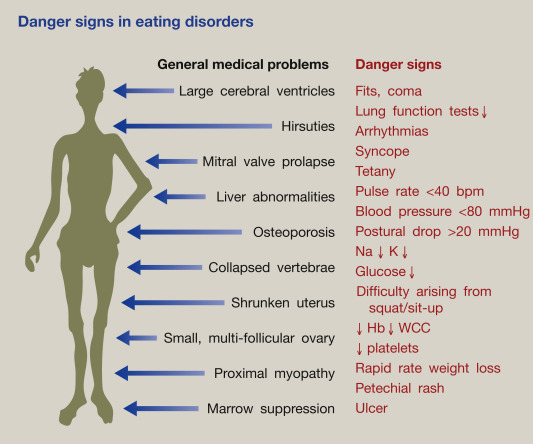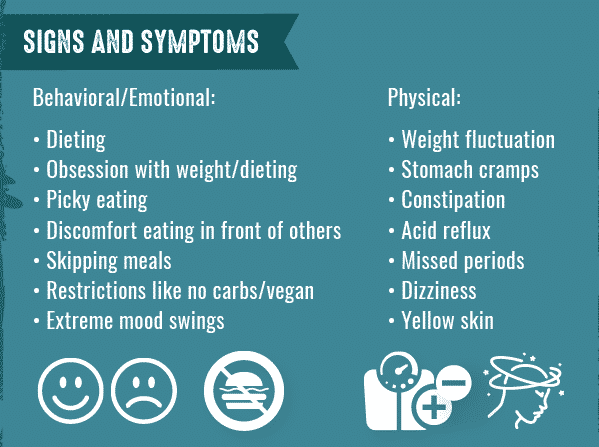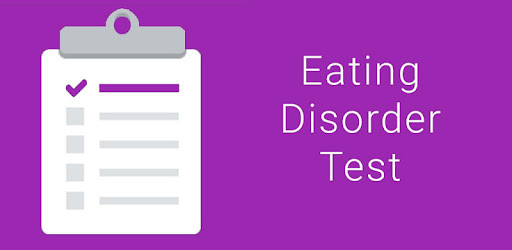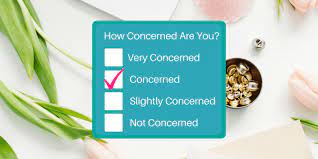Eating disorders are often overlooked as a mental health issue, but they’re an important topic to cover. Eating disorder tests help those who suspect that they may have an eating disorder figure out if there is a need for professional intervention. This article will provide you with information on what eating disorders are and how to take the test yourself!
Contents
Understanding Eating Disorder

What Is Eating Disorder?
An eating disorder is a mental health condition that causes people to have abnormal thoughts and behaviors about food and weight. There are three main types of eating disorders: anorexia nervosa, bulimia nervosa, and binge-eating disorder. All three conditions involve disordered eating patterns, but they differ in terms of how often the person experiences the symptoms.
What Are Types Of Eating Disorder?
There are three main types of eating disorders: anorexia nervosa, bulimia nervosa, and binge-eating disorder.
Anorexia Nervosa
People with anorexia nervosa have an intense fear of gaining weight and often have a distorted view of their body image. As a result, they will restrict their food intake severely or exercise obsessively to lose weight.
Bulimia Nervosa
People with bulimia nervosa also have a destructive relationship with food, but instead of starving themselves, they will binge on food and then purge it by vomiting or using laxatives.
Binge-eating Disorders
People with binge-eating disorders often feel out of control when it comes to their eating, but they do not regularly purge the food afterward.
What Are Degrees Of Eating Disorder?
There are three degrees of eating disorder: mild, moderate, and severe.
Mild Eating Disorder
People with a mild eating disorder have some symptoms of an eating disorder but they do not interfere with their daily life.
Moderate Eating Disorder
People with moderate eating disorders experience more significant problems due to their disordered eating habits, but they are still able to carry out most of their normal activities.
Severe Eating Disorder
People with a severe eating disorder have extreme and debilitating symptoms that significantly impair their ability to live a normal life.
What Causes Eating Disorder?
The cause of eating disorders is still unknown, but several factors may contribute to their development. These include genetic vulnerability, environmental influences, psychological factors, and biological factors.
Genetic Vulnerability
Eating disorders are thought to be partially caused by the genetic vulnerability. This means that people may be more likely to develop an eating disorder if their parents or other close relatives have had one.
Environmental Influences
Many experts believe that the environment plays a significant role in the development of eating disorders. Factors such as peer pressure, media images, and social norms can all contribute to disordered eating patterns.
Psychological Factors
Many people with eating disorders also have underlying psychological issues such as low self-esteem, body image dissatisfaction, perfectionism, and anxiety or depression.
Biological Factors
There is some evidence that suggests that there may be biological factors that contribute to the development of eating disorders. For example, people with eating disorders may have different brain chemistry or hormone imbalance that makes them more susceptible to developing an eating disorder.
What are the signs and symptoms of an eating disorder?

The signs and symptoms of an eating disorder vary depending on the type of disorder.
Common Signs And Symptoms
- Having a distorted view of body image
- Restricting food intake or dieting
- Feeling guilty or ashamed about eating
- Overeating
- Purging (e.g. vomiting, using laxatives)
- Exercising excessively
Anorexia Nervosa
- Intense fear of gaining weight
- Distorted view of body image
- Restricting food intake severely
- Excessive exercise
Bulimia Nervosa
- Binge eating followed by purging (vomiting or using laxatives)
- Extreme concern with weight and appearance
- Feelings of guilt and shame after eating
- Low self-esteem
Binge-eating Disorder
- Eating large amounts of food in a short period of time
- Feeling out of control during meals
- Eating when not hungry
- Hiding food or eating in secret
Decoding Eating Disorder Test

What Is Eating Disorder Test?
An eating disorder test is a questionnaire or survey that is used to assess whether someone may have an eating disorder. Most eating disorder tests involve completing a questionnaire or survey. There is usually no need to see a doctor or therapist take the test. However, if you are concerned about your eating habits, it is best to consult with a healthcare professional.
What Information Do I Get From Eating Disorder Test?
The information that you get from an eating disorder test will vary depending on the type of test that you take. Most tests will provide a score or rating that indicates how severe your symptoms are. The results of the test may also suggest whether you have anorexia nervosa, bulimia nervosa, binge-eating disorder, or another type of eating disorder.
Why You Should Take Eating Disorder Test?
If you are concerned about your eating habits, it is important to seek professional help. However, taking an eating disorder test can be a helpful way to start the process of diagnosis and treatment.
When You Should Take Eating Disorder Test?
If you are experiencing any symptoms of an eating disorder, it is best to consult with a healthcare professional. However, if you are just curious about your risk of developing an eating disorder, you can take a self-assessment test at any time.
How Does Eating Disorder Test Look Like?
Eating disorder tests come in many different formats, but they all generally have the same questions. The most common type of eating disorder test is a questionnaire that asks about your eating and exercise habits, as well as your feelings about food and your body.
How Accurate It Is?
Eating disorder tests are generally quite accurate in identifying people who have an eating disorder. However, they are not perfect and cannot diagnose an eating disorder on their own.
Types Of Eating Disorder Test
There are several different types of eating disorder tests that you can take. The most common types include:
Self-assessment test: This is a questionnaire that you can take on your own to assess whether you have any of the symptoms of an eating disorder.
Parental Eating Disorder Test: This test is designed to help parents determine if their child may be experiencing an eating disorder.
Eating Disorder Screening Test: This is a more comprehensive test that screens for all types of eating disorders.
Questionnaire: This is the most common type of eating disorder test and asks about your eating and exercise habits, as well as your feelings about food and your body.
Interview: This is a more in-depth test that involves meeting with a healthcare professional for an interview.
Medical exam: This is a test that involves taking your height and weight, as well as having blood tests and other medical exams.
NOTE: Eating disorder tests come in many different formats, but they all generally have the same questions. The most common type of eating disorder test is a questionnaire that asks about your eating and exercise habits, as well as your feelings about food and your body.
Questions To Ask Me Before I Take The Test?
If you are considering taking an eating disorder test, there are some questions that you should ask the doctor or therapist before doing so. Some important questions to ask include:
- What is the purpose of the test?
- How accurate is the test?
- What are the possible consequences of taking the test?
- Can I get the results of the test interpreted by a professional?
The Procedure Of The Eating Disorder Test
Most eating disorder tests involve completing a questionnaire or survey. There is usually no need to see a doctor or therapist take the test. However, if you are concerned about your eating habits, it is best to consult with a healthcare professional.
Sample Questions Of Eating Disorder Test

Below are some sample questions from an eating disorder test. This is not a complete questionnaire, and you should consult with a doctor or therapist before taking any self-assessment tests.
- How often do you diet?
- Ever feel like you need to purge after eating?
- Do you ever feel guilty after eating?
- Do you think about food a lot?
- How often do you exercise?
Result And Interpretation Of The Test
After completing an eating disorder test, you will usually receive a score that indicates the severity of your eating disorder. You can then use this score to help determine whether you need professional help.
NOTE: If you are concerned about your eating habits, it is important to seek professional help. However, taking an eating disorder test can be a helpful way to start the process of diagnosis and treatment.
Handling Result
If the results of your eating disorder test indicate that you have an eating disorder, it is important to seek professional help. Handling the results of an eating disorder test can be difficult, but with treatment, you can overcome your eating disorder and live a healthy life.
Talking To a Professional
If you are struggling with your eating habits, it is important to talk to a professional. A healthcare professional can help you understand the results of your eating disorder test and provide treatment for your condition.
Treatment And Therapies
There are many different types of treatment and therapies available for people with eating disorders. Some common treatments include:
Psychotherapy: This is a type of therapy that helps you understand the thoughts and emotions that contribute to your eating disorder.
Cognitive-Behavioral Therapy: This type of therapy helps you change the negative thoughts and behaviors that contribute to your eating disorder.
Family-Based Therapy: This type of therapy helps you and your family work together to overcome your eating disorder.
Nutritional Counseling: This type of counseling helps you learn about healthy eating habits and how to maintain a healthy weight.
Medication: Some people with eating disorders may need medication to help control their symptoms.
Case Study
Shannon is a 22-year-old college student who has struggled with her weight and eating habits for as long as she can remember. Recently, Shannon’s friends have been talking about an online eating disorder test that they took, and Shannon decides to take the test herself.
The test asks a lot of questions about Shannon’s eating and exercise habits, and the results indicate that she has a moderate to a severe eating disorder. Shannon is devastated by the news and doesn’t know where to turn. She decides to talk to her doctor about the test results and begins treatment for her eating disorder.
With help from her doctor and therapist, Shannon is able to overcome her eating disorder and live a healthy life.
The Key Message
If you are concerned about your eating habits, it is important to talk to a professional. A healthcare professional can help you understand the results of your eating disorder test and provide treatment for your condition. There are many different types of treatment and therapies available for people with eating disorders, so don’t hesitate to ask for help.
Eating Disorders FAQs
Below are some common questions and answers about eating disorders.
How common are eating disorders?
Eating disorders are relatively common and affect millions of people worldwide.
Can eating disorders be cured?
Most eating disorders can be cured with treatment. However, some people may experience relapses after treatment.
What is the prognosis for people with eating disorders?
The prognosis for people with eating disorders varies from person to person, but most people can make a full recovery with proper treatment.
What are the possible consequences of not getting treatment for an eating disorder?
If left untreated, eating disorders can lead to a wide range of health problems, including:
- Heart problems
- Bone loss
- Stunted growth
- Kidney damage
Are there any long-term effects of having an eating disorder?
Yes, there are many long-term effects of having an eating disorder. Some of the most common long-term effects include:
- Psychiatric problems, such as depression and anxiety
- Damage to organs, such as the heart, kidneys, and liver
- Infertility
What should I do if I think someone I know has an eating disorder?
If you think someone you know has an eating disorder, it is important to talk to them about it. You can also refer them to a healthcare professional for help.
Conclusion
Eating disorders can be serious conditions that require professional treatment. If you are struggling with your eating habits, it is important to talk to a healthcare professional. There are many different types of treatment and therapies available for people with eating disorders. With treatment, you can overcome your eating disorder and live a healthy life.
A Word From Therapy Mantra
Your mental health — Your psychological, emotional, and social well-being — has an impact on every aspect of your life. Positive mental health essentially allows you to effectively deal with life’s everyday challenges.
At TherapyMantra, we have a team of therapists who provide affordable online therapy to assist you with issues such as depression, anxiety, stress, workplace Issues, addiction, relationship, OCD, LGBTQ, and PTSD. You can book a free therapy or download our free Android or iOS app.


